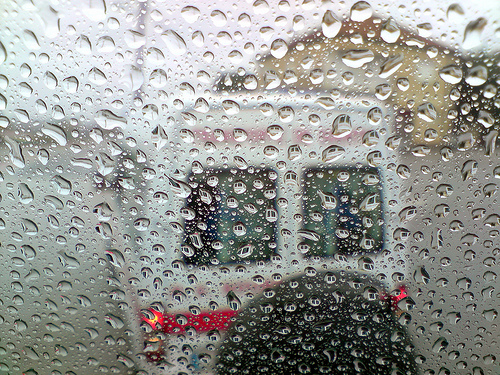At the best of times, a Heavy Goods Vehicle (HGV) is likely to pose the threat of an accident simply because of its characteristics of weight, size and construction. When you are driving your truck or HGV in bad weather, those risks are probably multiplied several times over.
Some Statistics
Figures released by the Department for Transport in September 2013 and quoted by the pressure group Campaign for Better Transport reveal that HGVs are considerably more likely to be involved in fatal accidents, mile for mile on the same type of road (that is to say, a minor road, trunk road or motorway), than other vehicles, according to the most recently available statistics.
In the winter months, when daylight hours are shorter and conditions on the roads more tiring, truck drivers also have to contend with poor weather – rain, sleet, snow, ice and high winds.
It might be argued that the financial costs arising from accidents involving such vehicles may be met in part at least by HGV insurance from Isis Insurance – specialist commercial insurance, for example. How much better, though, to try to avoid accidents in the first place.
Driving Safely
In fair weather or foul, truck safety on the UK’s roads is a function of more than the competence of the HGV driver – the owners of the vehicle and its state maintenance, the behaviour of other road users, and the layout and construction of the roads themselves also share responsibility for road safety.
As a driver, though, how might you make the roads somewhat safer?


Bad Weather by leorolim, on Flickr. This work is licensed under a Creative Commons Attribution-NonCommercial-ShareAlike 4.0 International License.
Concentration
It might seem to be a statement of the obvious, but driving an HGV requires your concentration and in bad weather even greater attention is required.
Tiredness
Although there are strict rules on the number of hours a driver may work, these restrictions may be pushed to the limit when road conditions are poor and the greater concentration brings on tiredness more quickly.
Owners
Haulage companies may have a part to play in recognising that bad weather might mean restricting driving hours still lower than the statutory maximum.
High Winds
Because of their greater resistance, high-sided trucks are especially prone to being blown over in high winds. Once again, therefore, there may be a part for owners to play by calling a halt to operations when strong winds are blowing. A report by the Daily Telegraph featured calls by some drivers of HGVs for a legal ban on driving in high winds.
Snow and Ice
These conditions are likely to seriously affect the time it takes to complete your journey, so allow for this when planning your delivery and pick-up schedules. If you happen to get stranded you may need to rely on emergency provisions and tools to help you either get out or hole up in your cab for several hours.
Fog
Fog tends to be disorientating and this clearly makes driving more difficult. Not only do you need to travel more slowly but also ensure that your braking distance is no further than the limit of visibility. Remember that it may take your HGV longer to stop than the vehicle you are following.
Heavy Rain and Flooding
Heavy rain may also significantly reduce visibility, so similar rules apply with respect to slowing down and remaining aware of your braking distances. If the road ahead is flooded, only proceed if you are certain of the depth of water through which you need to drive.
Local Conditions
Bear in mind that some parts of the country may be subject to more adverse weather conditions than others (Scotland, Wales and the West Country, for example), so try to avoid known black spots by planning your route accordingly.
Other Road Users
It is not only your own driving that is likely to be affected by bad weather, but other road users, too. Some of these might be especially vulnerable – such as pedestrians, cyclists and cars towing trailers or caravans.
Driving your truck in bad weather is likely to involve greater care and concentration on your own part and provide a greater challenge for other road users, too. You may want to allow extra time for your journey and recognise when you have become too tired to continue safely. By paying attention to the road conditions where you are driving, however, you may also play your part in keeping the roads safer for everyone.
Eddie Johnson is an insurance industry veteran and HGV insurance expert who founded Isis Insurance – specialist commercial insurance brokers who are based in Cheshire, providing a bespoke service to growing businesses around the UK. Their insurance portfolio includes a wide range of insurance products, particularly those for businesses that operate heavy goods vehicles, such as HGV Insurance, Multi-Vehicle Insurance, Fleet Insurance, Goods In Transit Insurance and Employers’ and Public Liability Insurance. Follow Eddie on Facebook or Twitter.
This article is a guest post. If you would like to write for Money Soldiers, you may visit the Write for Us menu for details.
